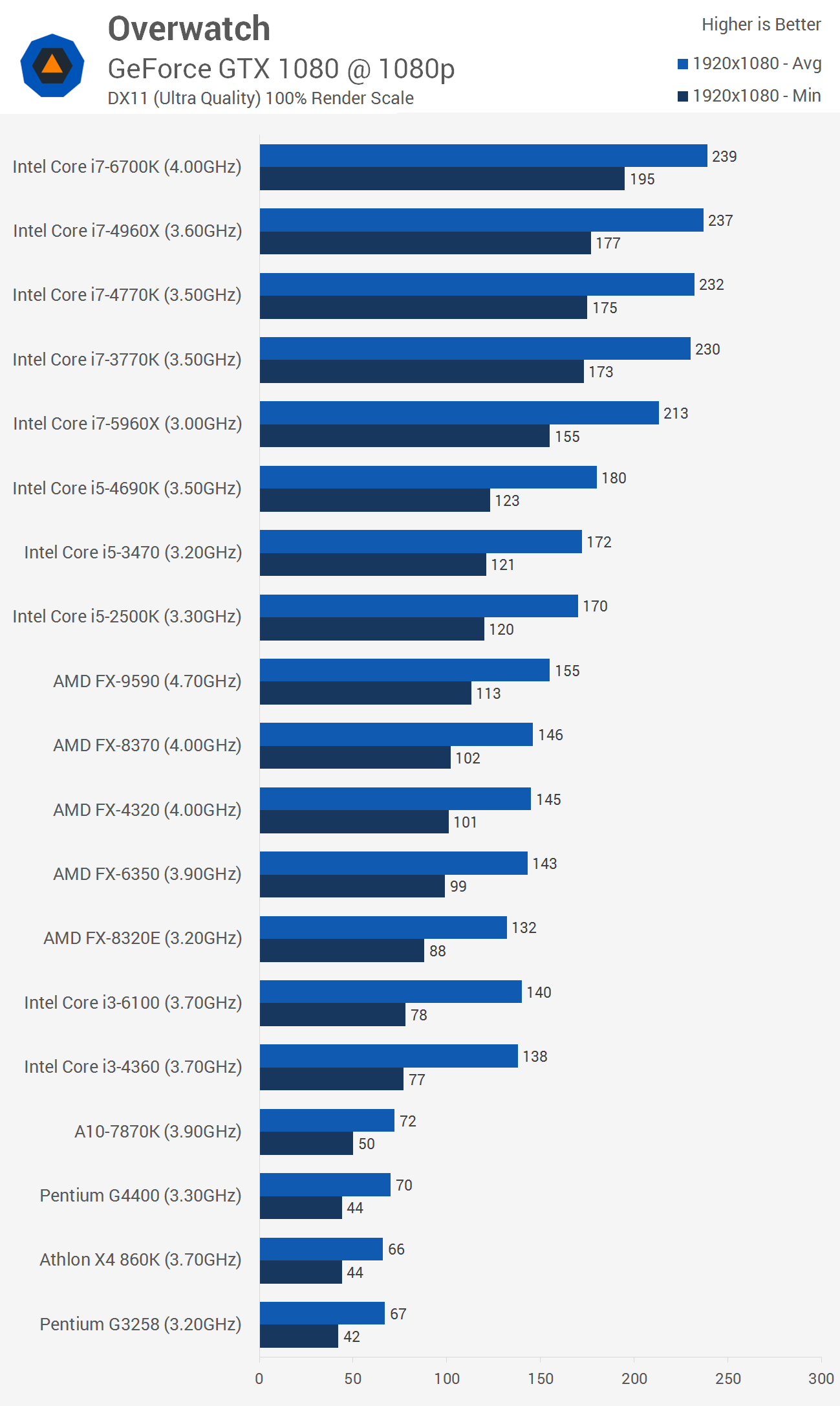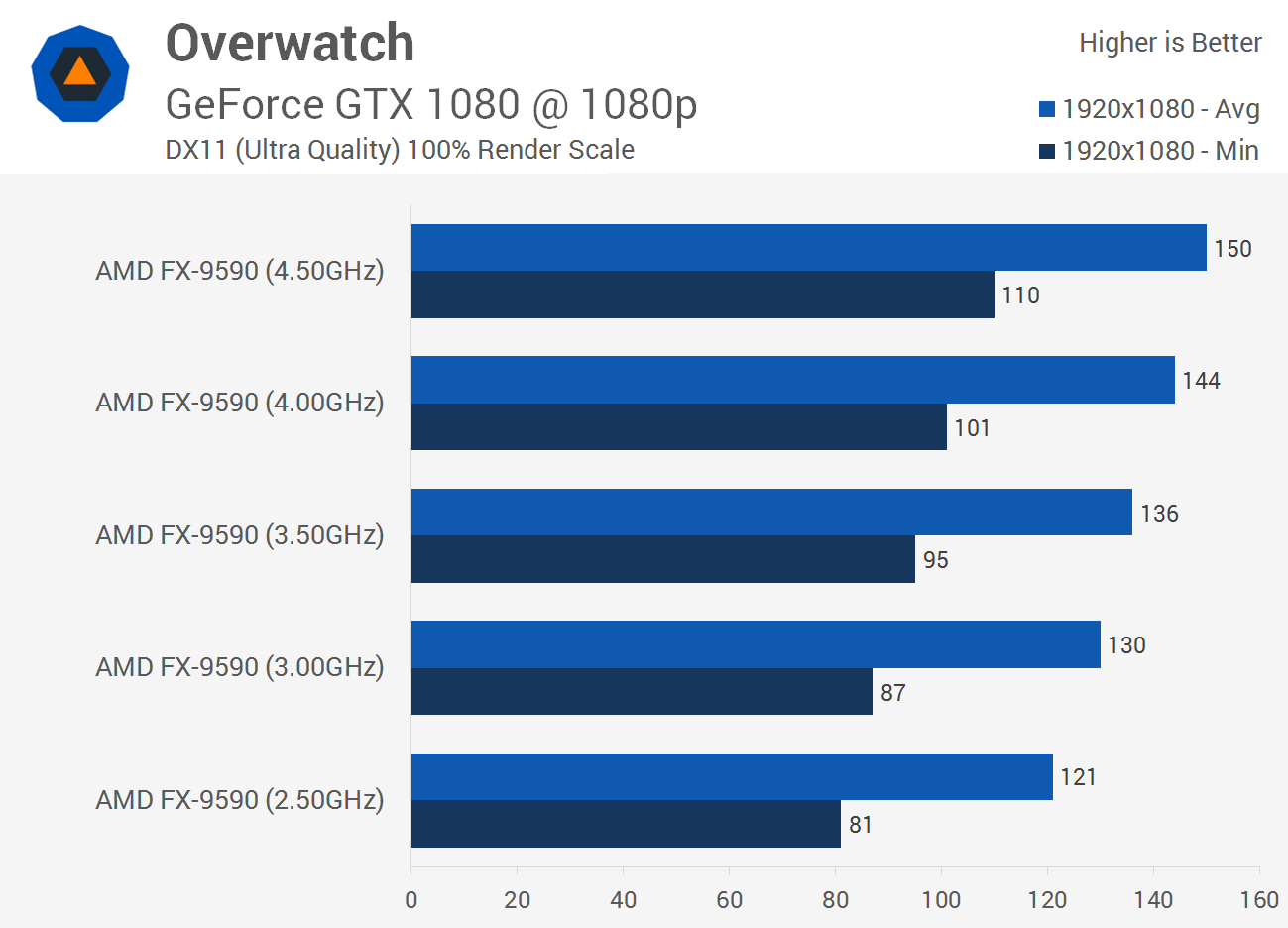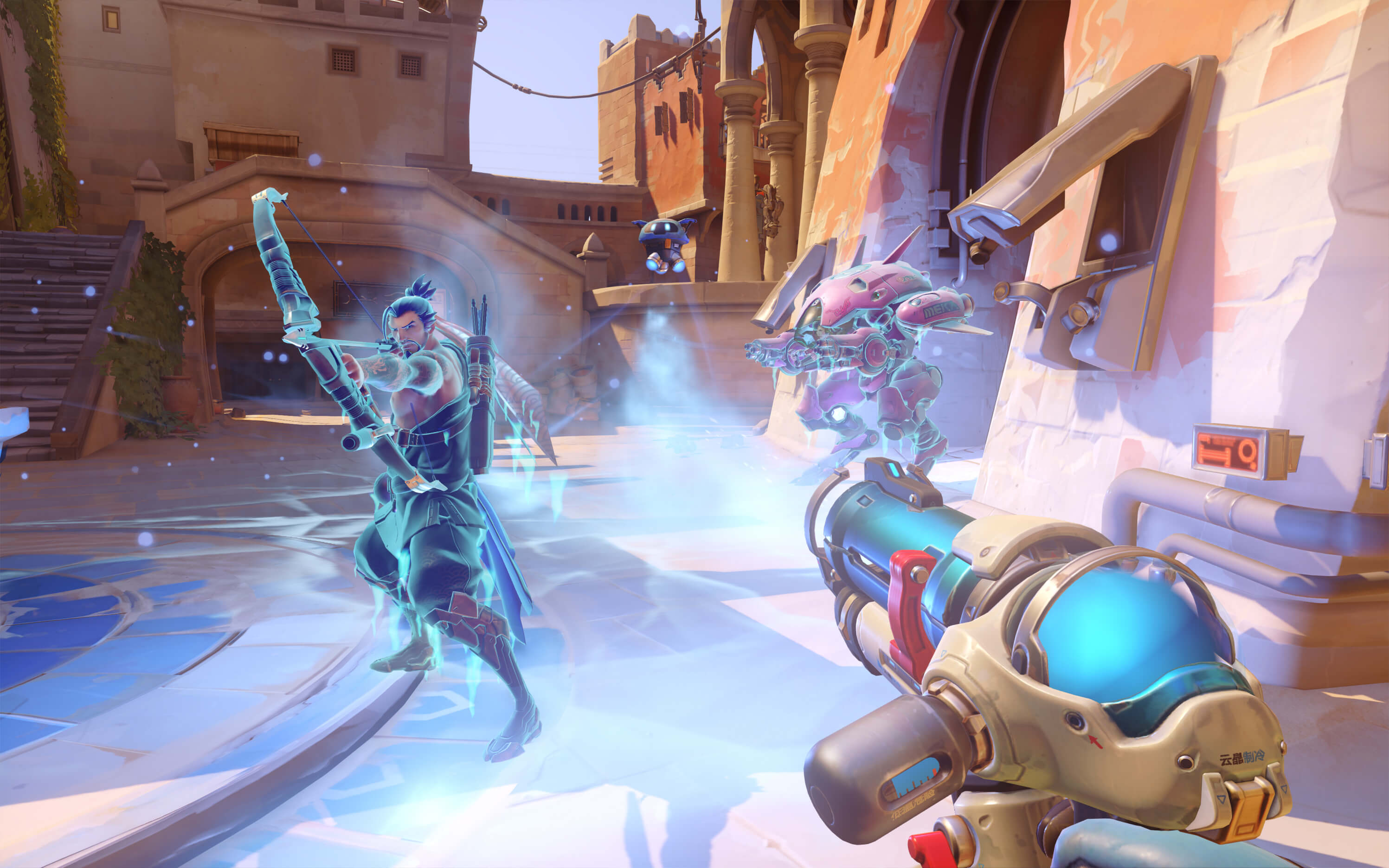Benchmarks: CPU Performance

With two maxed out teams of AI bots, Overwatch is quite CPU intensive. That said, while the Core i7 processors were considerably faster than the Core i3 and FX-series processors, it's important to keep in mind that we are testing at 1080p using a GTX 1080. Therefore, while the Core i3-6100 looks slow in comparison it still maintained over 70fps at all times and the same is true for the FX-series. Those with 120Hz or 144Hz monitors will want to ensure that they have a Core i5 or better.
Folks using a low-end CPU such as a Pentium or AMD APU will be sacrificing quite a bit of performance in Overwatch, though if they are running a GTX 960/R9 380 or slower (which they should be) then this CPU limitation isn't really a big deal.

Using the GTX 1080 we see a consistent improvement in frame rate as the processors clock speed is increased. The game was far from unplayable at 2.5GHz with a minimum of 135fps, but that was a 31% performance drop from the 4.5GHz configuration.
Clocked and locked at 4.5GHz, the FX-9590 delivered 150fps on average with a 110fps minimum. That sounds great but it's actually quite a bit slower than the Core i7-6700K at just 2.5GHz. Although the FX series is much slower, most gamers won't notice a difference as the AMD processors can push past 100fps when clocked high enough.

Finally, the little dual-core processor that could... and evidently can. Clocked at 3GHz or lower, stuttering was an issue though this did seem to be corrected once we hit 4GHz. At this speed the G3258 never dropped below 50fps and we found the gameplay to be quite smooth.
